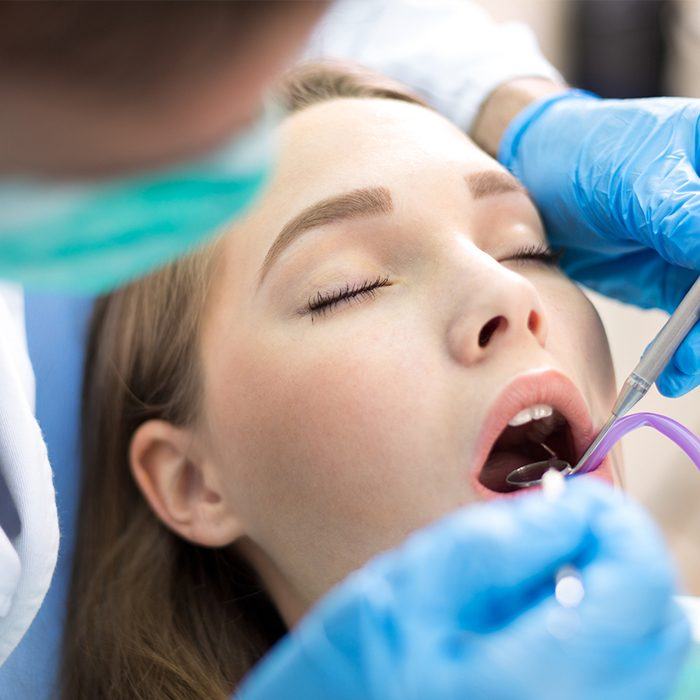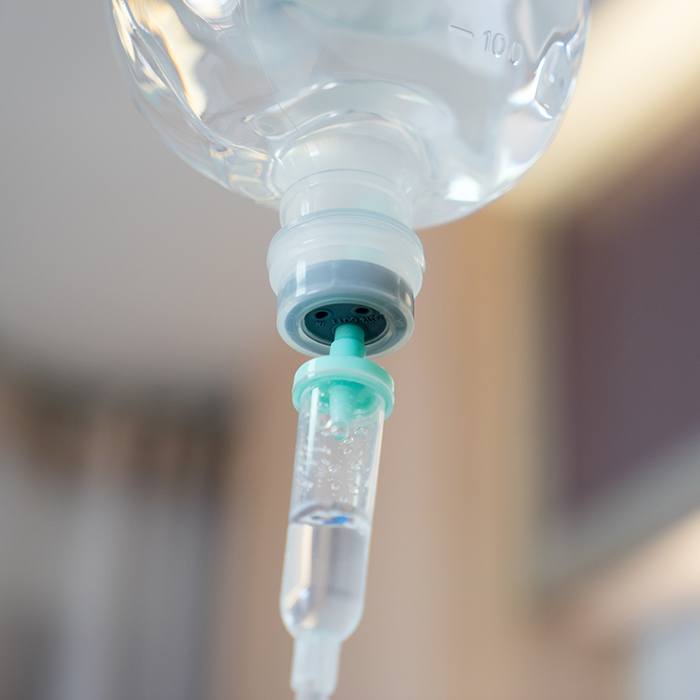For some people, the thought of undergoing even a routine dental procedure can be overwhelming. Often, people will forgo the treatment they desperately need to avoid the intense anxiety associated with the dentist’s office. At Dental Wellness of Lexington, we believe that your fears should never hinder your ability to receive the care you need. It is this belief that has driven Dr. Feck to dedicate much of his career to advancing the practice of sedation dentistry.
IV Sedation – Lexington, KY
Say “Goodbye” to Dental Fear

Why Choose Dental Wellness of Lexington for IV Sedation Dentistry?
- Recognized nationwide as experts in IV sedation
- Can be used with any procedure
- Experienced team dedicated to providing comfortable care
Who Could Benefit from IV Sedation?

Dental Wellness of Lexington offers two types of sedation dentistry: nitrous oxide and Intravenous (IV). Nitrous Oxide works wonders for many patients; however, there are those people whose fear of the dentist is so overwhelming that this alternative is not enough to calm their nerves. For these patients, we can provide the option of Dental Intravenous Anesthesia. This option is also used for those people undergoing slightly more invasive and anxiety-ridden procedures such as root canals and fillings.
Your Sedation Expert

You can feel confident in Dental Wellness of Lexington’s ability to perform intravenous sedation dentistry. Dr. Feck has led the way in sedation dentistry, cementing himself as Lexington's leading sedation dentistry expert. Dr. Feck serves as the Dean of Faculty for DOCS, which teaches the proper and most effective way to practice sedation dentistry to dentists from all over the country. His expertise is unmatched, and he has passed his passion and knowledge onto the rest of his staff. You will be sure to get the proper care and the best experience you have ever had at the dentist.
What It’s Like to Get IV Sedation

The process is quite simple. It begins with the administration of a mild anti-anxiety medication using an IV. It is important to note that you will not actually be put to sleep. Instead, you will remain conscious and be able to understand and respond to your dentist. However, you will be in a deep state of relaxation and feel like you are drifting in and out of sleep. Our physicians are extensively trained and will monitor you throughout the visit. When the procedure is finished, you are given plenty of time to return to normal. You will not be sent home until you feel ready. You will need to have someone drive you home after the visit and will need to spend the rest of the day taking it easy. The next day, you should be back to 100%, and the best thing is you won’t have much recollection of the procedure you underwent.
We have successfully performed both routine checkups and more invasive procedures with the use of sedation. Our patients have expressed their satisfaction with the process and their gratitude for offering a relaxing alternative. The introduction of sedation dentistry has allowed patients who have avoided the dentist for years to receive the oral care they need.
IV Sedation FAQs

To remove any doubts you might have about IV sedation before the day of your appointment, we encourage you to let us know if you have questions about your treatment. It’s important to know exactly what to expect on the day of the treatment so that you can decide whether IV sedation is truly right for you and make the appropriate arrangements beforehand. Before you call, though, check to see if your concerns are answered below.
Is IV Sedation Safe?
The risks of IV sedation are quite low thanks to the advancements that have been made over the last few decades. Patients with heart disease, high blood pressure, and certain other health problems might be at a higher risk for complications, but overall such occurrences are quite rare. We’ll have to carefully evaluate your general health history to figure out your personal risks when it comes to IV sedation. In some cases, we might have to get in touch with your regular physician to get medical clearance before moving forward with the procedure in question.
What are the Advantages of IV Sedation?
You have other options for sedation, of course, but IV sedation has several benefits of its own that help it stand out.
- It takes effect within seconds of being administered, instantly putting you into a deep state of relaxation where your fears and anxieties about your treatment will completely disappear.
- We’re in complete control with how much sedative you receive at any given time. You’ll receive small doses until you reach the desired state of relaxation, at which point we cut off the medication. Further doses can be administered if you start to wake up.
- It allows even the most anxious patients to comfortably undergo the procedures that are essential for maintaining oral health.
How Can I Plan for IV Sedation?
Make arrangements for a trusted adult to drive you home while the effects of sedation are still wearing off; you should not plan on driving (or operating any sort of heavy machinery) for at least 24 hours after the procedure. Avoid eating or drinking for at least six hours before the procedure. Make sure you wear loose clothing so that we can place the appropriate monitoring equipment. Let us know beforehand if you have a cold, sore throat, upset stomach, or any kind of illness.
What Side Effects Should I Be Aware Of?
Nausea commonly occurs after procedures with IV sedation, but there are steps you can take to avoid the sensation. Loss of short-term memory about the procedure also occurs, although that can be considered a benefit for patients with strong dental phobias. And of course, you can expect to experience drowsiness that requires you to rest for the remainder of the day. Some patients might react differently to the medication – after all, everyone’s body is different. If you’ve had previous experiences with sedation or anesthesia of any kind, let us know so that we have a good idea of what we should expect ahead of time.
